“Concrete lasts forever,” they say – but not without the right protection! Melbourne’s weather is unpredictable, with hot summers and wet winters. Even the strongest concrete driveways can lose their shine, strength, and surface appeal if they are not sealed. Sealing your concrete driveway is not a luxury, it is an important step in keeping it looking good and lasting a long time.
But picking the right driveway sealant isn’t as easy as just grabbing the first can off the shelf. You can hear a lot of people say “water-based” and “solvent-based” when you go to a hardware store or talk to a local concreting expert. Both promise to keep you safe, last a long time, and give you that fresh “wet-look” finish we all love. But here’s the catch: each one works differently in real-life Melbourne conditions.
The Stakes & What You’ll Learn
The Australian Concrete Association’s 2024 industry report found that more than 60% of driveway surface damage is caused by not sealing it properly or not sealing it often enough. That’s a scary number, especially for homeowners who spend thousands on decorative finishes like coloured concrete or exposed aggregate. What is the good news? You can keep your driveway’s rich colour and smooth surface for up to 10 years longer if you choose the right sealant and use it correctly.
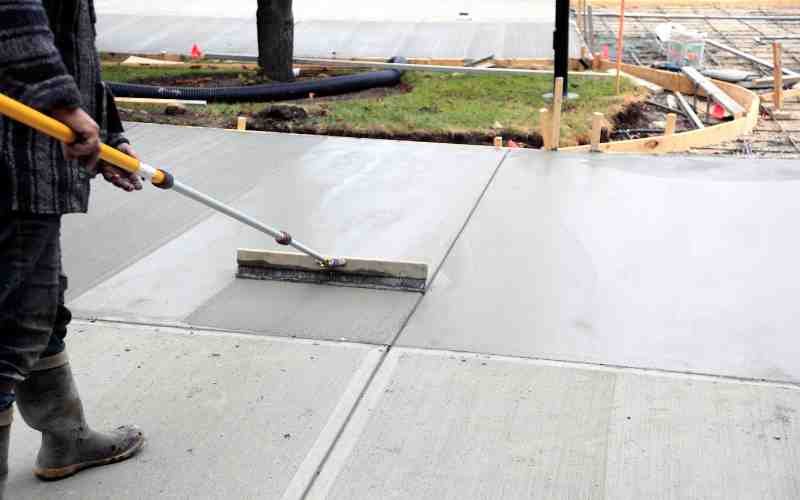
We’ll talk about the most important differences between water-based and solvent-based concrete sealers in this blog post. We’ll talk about how they look, how well they work, how they affect the environment, and how to use and take care of them. No matter if your driveway is new or needs to be resealed, you’ll find out which one is best for Melbourne’s weather.
Understanding Driveway Sealant
A driveway sealant is a protective layer that goes over concrete to keep it safe from water, oil stains, UV rays, and regular use. It keeps the concrete looking good and strong and stops it from cracking, fading, and changing colour.
In Melbourne, there are two main types of sealers: those that are based on water and those that are based on solvents. The two serve the same purpose, but they are different in terms of chemistry, appearance, how they are used, and their effect on the environment. Knowing these differences will help you pick the best choice for your home. If you want to learn more about sealants, concrete experts in Cheltenham can help.
Water-Based Concrete Sealant
What They Are
Water-based concrete sealers use water to move the acrylic, epoxy, or polyurethane resins. A thin, strong film is left behind on the concrete surface after the water has dried.
Key Advantages
- Eco-Friendly: These sealers have low levels of VOCs (volatile organic compounds), which makes them better for the environment and your family.
- Low Odour: It doesn’t smell too strongly of chemicals, which makes it great for homes.
- Non-Yellowing: They stay clear over time, so your concrete driveway will stay the same colour.
- Easy to Apply: You can clean it up with water, and it’s great for do-it-yourself projects.
- Good UV Resistance: Great for concrete driveways that get a lot of sun in the summer in Cranbourne and Melbourne.
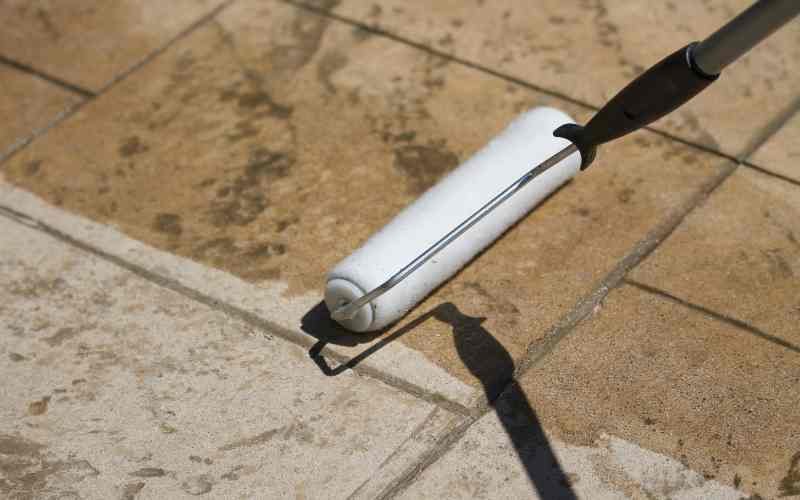
Best For
- Driveways that are made of coloured and decorative concrete.
- Places where air can’t move around freely.
- People who own homes and want a finish that is either matte or semi-gloss.
Limitations
Water-based sealers are more durable than solvent-based ones, but they don’t penetrate as deeply. They may need to be reapplied every two to four years, depending on how much traffic and weather they get.
Solvent-Based Concrete Sealant
What They Are
Chemicals like xylene or acetone are used in solvent-based sealers to hold the resin. When you put these solvents on, they dry up and leave behind a thick, shiny, and long-lasting layer of protection.
Key Advantages
- Deep Penetration: Great for sticking to and protecting concrete surfaces that are old or have holes in them.
- Rich “Wet Look” Finish: Brings out the colour of concrete that has been stamped or exposed aggregate.
- Longer-Lasting Protection: Needs to be put back on every four to six years.
- Better Stain Resistance: Keeps chemicals, oil, and grease from spilling.
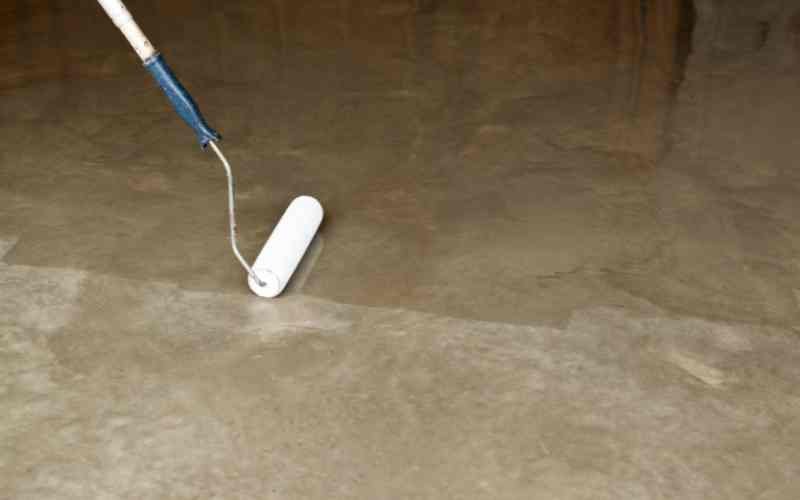
Best For
- Commercial surfaces and driveways made of concrete that get a lot of traffic.
- People who own homes and want their floors to look “wet.”
- Older concrete driveways in Dandenong that need better sealing.
Limitations
- Strong Odour and High VOC: Not safe to use in closed spaces without good ventilation.
- Flammable: Must be handled carefully while applying.
- Hard to use over water-based sealers: Mixing the two can make it hard for them to stick together.
Water-Based vs Solvent-Based: Key Differences
| Feature | Water-Based Sealer | Solvent-Based Sealer |
| Finish | Matte or Semi-Gloss | Glossy “Wet Look” |
| VOC Content | Low (Eco-Friendly) | High (Requires Ventilation) |
| Odour | Minimal | Strong |
| Durability | 2–4 Years | 4–6 Years |
| Application | Easier for DIY | Requires Professional Care |
| Penetration Depth | Moderate | Deep |
| Best Use | Decorative, Coloured Concrete | Exposed Aggregate, Heavy-Traffic Driveways |
Which Sealant Works Best for Melbourne’s Climate?
The weather in Melbourne can be hard to deal with. In the summer, it’s hot and sunny, and in the winter, it’s cold and wet. Because of this, it’s very important to choose a concrete sealer that can protect against moisture and UV rays.
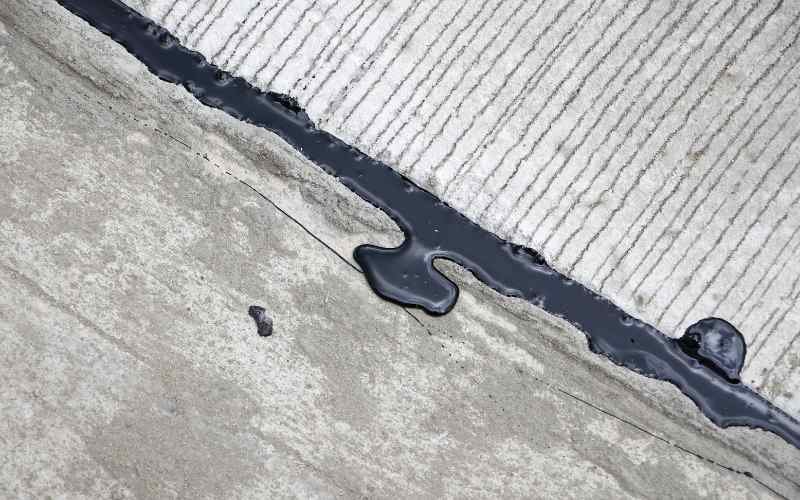
Water-based sealers are better when looks and safety are important. They are good for modern driveways in suburban Melbourne because they protect and are easy to take care of.
Older, porous driveways or commercial spaces that get a lot of oil and traffic are better suited for solvent-based sealers. They last a long time and have a lot of colour depth.
In the end, the “best” choice depends on what you want to do. Want that deep, shiny finish and long-lasting strength? Choose a sealer that is based on a solvent. Want a solution that is good for the environment, doesn’t smell bad, and is easy to reapply? A water-based sealer is a good thing.
DIY vs Professional Driveway Sealing
You might want to seal things yourself, but if you don’t do it right, the finish could be patchy, peel, or even damage the surface. Professional concrete workers use commercial-grade products and sprayers to make sure that the concrete cures correctly and covers evenly.
DIY Sealing Tips
- Before applying, make sure the surface is completely clean.
- Do not seal on days when it is very hot or humid.
- Instead of one thick coat, use two thin ones.
- Wait 24 to 48 hours before driving over it.
When to Call the Professionals
Hiring a pro will make sure the work lasts if your driveway is big, has exposed aggregate, or is very dirty. A licenced concreting team will check the surface, use UV-resistant concrete sealers, and apply the sealers carefully. This will save you time and money on mistakes.
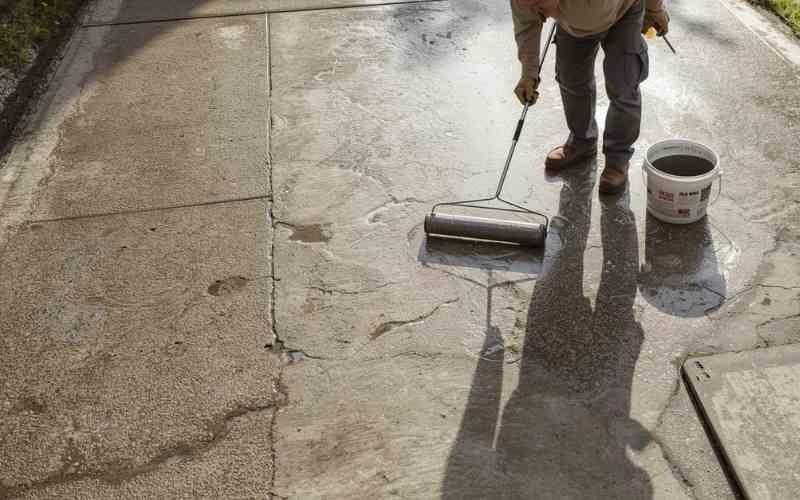
Concrete Driveway Sealing Cost in Melbourne
The price depends on the size, condition, and type of sealer. On average:
- Water-Based Sealer: $6–$10 per m²
- Solvent-Based Sealer: $10–$15 per m²
Professional services usually clean the surface, get it ready, and put on two coats of high-quality sealer. Sealing costs a lot of money at first, but it saves you a lot of money on repairs in the long run because it keeps cracks, fading, and water damage from happening.
How Often Should You Reseal Your Driveway?
- Residential Concrete Driveways: Every 3-5 years.
- High-Traffic or Exposed Aggregate Driveways: Every 2-3 years.
Regular resealing helps keep the protective layer in good shape, especially after a lot of rain or sun. If you see dullness, patchiness, or water soaking in quickly, it’s time to reseal.
Environmental & Safety Considerations
If you care about the environment, water-based concrete sealers are the best choice. They are better for your home, pets, and plants because they don’t release a lot of VOCs.
But for older concrete or industrial uses, solvent-based sealers might still be better because they last longer. Just make sure to ventilate the area and get rid of the solvents properly.
Pro Tips for Maintaining Sealed Concrete Driveways
- Clean often: Use a broom to get rid of dirt and a mild detergent to wash.
- Avoid using strong chemicals because they can damage the sealer layer.
- Reapply on a regular basis: Keep your surface looking new and safe.
- Look for tyre marks or stains: For areas with a lot of foot traffic, use a penetrating sealer.
- Keep an eye on the weather: Don’t seal when it’s very hot or raining.
The Final Verdict
So, which is better: water-based or solvent-based concrete sealers? What matters most is the type of driveway you have, how you use it, and what you care about most in the environment.
If you want a finish that is easy to apply, doesn’t smell, and is good for the environment, choose a water-based concrete sealer. It’s perfect for homes in modern Melbourne and driveways with light traffic.
If you have a lot of traffic or use your concrete driveway a lot, a solvent-based sealer will protect it well and make it shine. It will also protect them for a long time.
No matter what you choose, make sure you use it correctly. A professional concreting team, like MNJ Concreting & Landscaping, makes sure your driveway not only looks great but also lasts for years in Melbourne’s changing weather.
Ready to Protect Your Driveway?
We at MNJ Concreting & Landscaping are experts at sealing, resurfacing, and adding custom finishes to concrete driveways all over Melbourne. We’ll help you choose the right sealant and make sure it lasts, whether you need to seal exposed aggregate or take care of decorative concrete.
Your driveway needs more than just a coat of paint; it needs protection that lasts all year.

